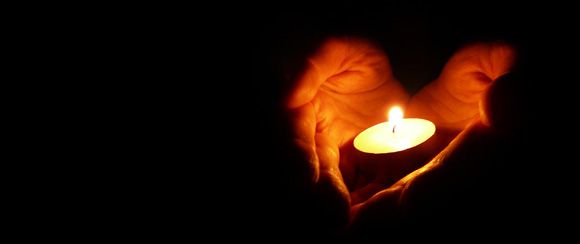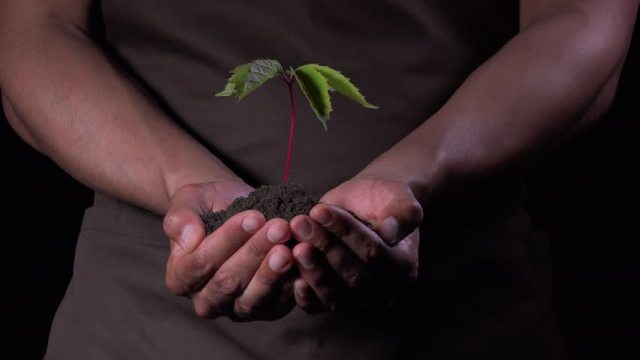Brace yourselves for the beauty you are about to read, friends. Ever wanted to know what systematic, queer, Lutheran theology looks like? Well, here it is – in the form of J. Pace Warfield-May and their powerful reflection on queer joy. Happy Pride, and read, comment, and share!
Francisco Herrera, Ph.D. student and Interim Blog Editor
TW: sexual violence mention
CW: violence against queer people and people of color

“The air (caeli) and the ground (terra) are full of your glory” – the Sanctus
…
To look at me
through a smirr of rain
is to taste the iron
in your own blood
-Kathleen Jamie, “The Wishing Tree”
“In the day that the Lord God made the earth and the heavens” begins the second creation story.[1] We are told that the first human was made out of the ground, shaped out of mud, and then God breathed into their nostrils “the breath of life,” and that first human became a living being.
Out of the ground we were formed, and for the next three million years we have tried to distance ourselves from the ground with which we share our bodies.
Okay, sure, maybe we were not literally made from the ground, surely we evolved over millennia through the process of evolution by natural selection, but our bodies, our physical selves, are made of carbon and iron and calcium and oxygen and the same elements that make up all life and make up our universe. How quickly we try to align ourselves with the heavens and focus on our intellect, come up with myths about being some pinnacle of evolution, create elaborate dualisms that align our bodies with their dirty, earthen origin yet our minds with heaven, and then, how much of a stretch is it to go from earthy body to sinful body, heavenly mind to godly soul?
I struggled for a long time with what to write about when asked to write a post for pride month this year. A global pandemic with 7.5 million people infected and half a million dead continues to burn through countries. Protests over the murders of George Floyd, Breonna Taylor, and countless others, named and unnamed black men, women, and nonbinary people as a result of police violence continue to call for justice even as news coverage begins to fade. As I am typing this, it is on the eve of the four-year anniversary of the Pulse shootings in Orlando, Florida, where 49 people primarily Latinx, primarily queer, were murdered.
I have a strong urge to write about queer joy, the beauty of queer happiness and love, the holiness of queer touch and intimacy and longing. But then I remember that LGBTQIA+ people are at greater risk for food insecurity, housing instability, underemployment and unemployment, and on average earn lower wages than cisgender, heterosexual people.

This affects LGBTQIA+ people of color at an even higher rate. The average black transwomen, for instance, makes less than $10,000 a year. [2] I remember that 40% of homeless youth identify as LGBTQIA+, and 30% of homeless people of all ages accessing services identify as LGBTQIA+.[3] And I remember that there is a long history of violence and harassment of the LGBTQIA+ community by law enforcement, which continues to be a pervasive issue. Nearly one quarter of trans women report receiving harassment from law enforcement, and six percent report receiving violence from police. This again disproportionately affects LGBTQIA+ people of color.
Additionally, 73% of LGBTQIA+ people living with HIV had interactions with police in the prior year, with 21% of those reporting harassment or verbal or physical violence from law enforcement.[4] I remember how prevalent racism is even within the LGBTQIA+ community that can make building support networks, finding romantic or sexual partners, having access to community resources, and access to representation even more challenging. LGBTQIA+ people of color, and in particular black and brown trans women and non-binary femmes, disproportionately are victims of violence, sexual assault, and homelessness.
I remember these things and I think that I’m not sure cis straight people deserve to see our joy.
Taste and see the goodness of the Lord.[5] But all I taste is ash and the iron in my own blood. It is too easy to talk about heaven when you’re standing on poisoned ground.
So let us address the ground first.
The ground I am speaking about is a metaphor, to be clear. It is what humankind was molded out of, and it is what we shall return to when we are dust. It is the valley of dry bones in Ezekiel 37. It is the mud that Jesus mixed with his spit to bring healing. The ground that held Jesus’ lifeless and broken body for three days. It is the ground from which dead blood cries for justice. It is the ground in which 32 million people who died from complications from HIV/AIDS are buried. It is the ground from which the rock of ages and the firmament springs forth from, spiraling into the universe. The ground that is considered unclean, dirty, riddled with creeping, crawling things. The ground that is pumped full of pollution, the ground under which every war has ever been fought.

The ground which absorbed my tears after the death of my brother. The ground which was a source of fascination for so many children who play and get their hands dirty in it. The ground which supports life and sustains it.
The queer person is tied closely to the ground.
Remember that dualism I brought up in the beginning, about a strict heaven/earth distinction, in which philosophy and learning and intellect are tied in with heaven and godliness and things like the body and its functions and even entire categories of people like women are associated with the ground and sin? The queer body is tied to the ground, and so too queer love, desire, pain, longings, joys, and heartbreaks. Our sex is called dirty and unclean. Our love is called unnatural. Our entire lives are seen as sinful, broken, and disordered. The queer ground—containing our bodies and our lives—is so often seen at best as a perversion of God’s natural order and at worst as entirely removed from God’s grace, love, and glory.
And when we experience trauma in our lives, that trauma is so often absorbed into our bodies and hearts and minds and seen as absolutely unworthy of any redemption. And sometimes, it is seen as deserved.
As an example: I was around ten years old when I first experienced sexual violence. When I was sexually assaulted again, once in college, and then once more a few years ago, all of those experiences were written on my soul and in my body as deserved because I have been taught that my entire life as a queer person is a life of sin, so any sin done to my body or heart or mind is sin on sin. There are so many similar stories from my queer friends. About half of trans, nonbinary, and GNC people have experienced sexual violence. A quarter of gay men and 44% of lesbian women have experienced sexual violence, and numbers are even higher for bi men, women, and nonbinary people.[6] So many of us don’t report, so many of us don’t even realize the violence done to our bodies is even violence.
With therapy, a strong support network, and a doctoral level of theological training, I was able to find redemption in my body, to find new life and hope brimming just underneath the surface of the queer ground. Not everyone has that luxury.

But let me give a small taste of what that looks like.
Taste and see the goodness of the Lord. Today it tastes like strawberries as I kiss my beloved’s strawberry lips. Let me tell you about the safety of an embrace, about how deeply I can feel at home in a touch. Can I tell you about the first time I felt at home—truly at home—in my fat and queer body, was at a pride parade surrounded by a myriad of other bodies of various shapes, sizes, colors, and ability levels?
Do you know the sacrament of a kiss? Have you heard the whisper of God’s love fill your heart as she whispers alongside the voice of your beloved? Have you eaten your fill of bread only to realize how deep your hunger still goes when you participate in that foretaste of the eschatological feast to come, that foretaste that is called brunch among your closest and queerest friends? When you have community in spades because you finally gave yourself permission to look for community beyond the church walls and find it in queer salons—the living rooms of friends—often gathered around houseplants and cats and dogs and…
The earth springs forth from God’s left hand—the firmament, the ground of all being. It rises. And continues to rise, spreading further and further apart, in every direction, an ever-expanding universe. What is to prevent the universe from expanding into oblivion? The right hand, the delta. The right hand of God is the air–the heavens—and it holds the chaos in place, a continual rapturous swirl, from spinning too far, the broken from shattering too deeply, the death from outpacing the life. Every breath, every loss, every heartbreak, every death, every birth, every touch and taste, every whisper, every ecstasy, everything remembered and everything forgotten, has taken place in this space between the ground and the heavens, the firmament and the delta.
It is easy to find holiness in community. It is heartwarming, enriching food for the soul to experience God’s love in queer joy.

I find redemption in my queer body, sparks of God’s joy and grace in the here and now, every time I give my permission to love myself, to claim my voice, to work for justice, and especially every time I give myself permission to feel queer joy.
It’s harder to find redemption in queer pain, sorrow, and suffering. But it’s there.
My blood shares the iron with the ground as it pulses through my heart and throughout my circulatory system. The queer body is the queer ground, and that ground is holy. As the Sanctus says, all of the air and all of the ground is full of God’s glory. God breathed life into the queer ground and look at how it grows and lives and loves. Look at how it tells the goodness of God.
There is no separation between heaven and earth, the air and the ground. It is all saturated with divine love and grace.

It is the queer ground I was made from. I will be buried in that same ground. And one day, from the ground, new life will be breathed into these dry bones. I am made of ground, and the ground is full of God’s glory.

J. Pace Warfield-May (they/them/their) is a PhD student at the Graduate Theological Union in Berkeley, California and received their MA in systematic theology from the Lutheran Theological Seminary at Gettysburg (now United Lutheran Seminary). They are studying systematic theology, with research interests in Martin Luther and the Reformation, queer theology, and deconstruction. Pace presently lives in the Baltimore-DC metropolitan area with their husband, Matt, and two dogs.
[1] Genesis 2:4b and following.
[2]http://www.thetaskforce.org/povertyreport/
[3] https://nationalhomeless.org/issues/lgbt
[4] https://williamsinstitute.law.ucla.edu/publications/lgbt-discrim-law-enforcement/
[5] Psalm 34:8.
[6] https://www.hrc.org/resources/sexual-assault-and-the-lgbt-community
